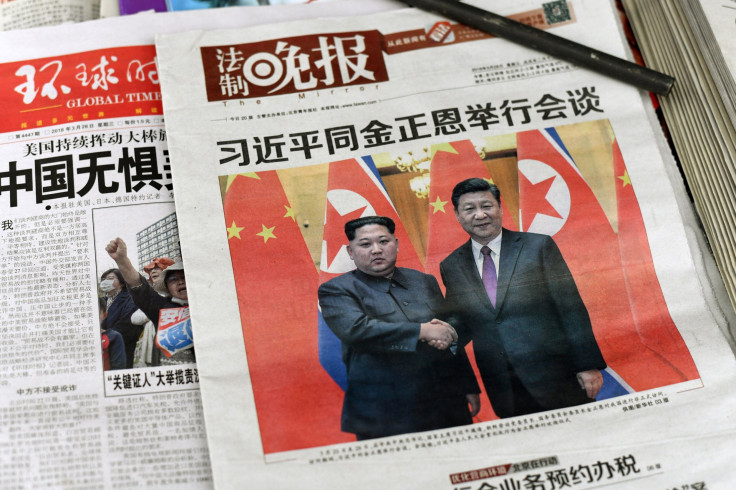Kim Jong Un Insults, Like 'Fatty The Third,' Banned On China's Internet

In order to reflect warming bilateral ties between the two nations, the Chinese government banned all words which could be used to insult North Korean Leader Kim Jong Un from their internet searches, sources said Thursday.
For example, the Chinese word “Jin San Pang," which means "Kim Fatty the Third," in English — a nickname used to mock the North Korean leader — was used in dozens of posts and internet searches on Baidu, China's largest portal site. The term has almost completely vanished from the site after the conscious decision by the Chinese government to ban such insulting words, Korea Herald reported.
"When bilateral conflict escalated over North Korea's missile and nuclear tests last year, China didn't impose a ban on searches for 'Jin San Pang.' But the phrase has disappeared online after Kim met with Xi in Beijing in March," said a source.
In addition to Baidu, words insulting to Kim were banned from the popular Chinese social media forum Weibo.
China has also doubled down on its state-controlled media to promote as much positive news about North Korea as possible. As a result the People's Daily has increasingly focused its coverage of Pyongyang to its economic and industrial growth under the nation’s current leader as well as North Korea’s delegation visiting China.
At the same time, other state-run newspapers have called for North Korea's “security guarantee” in return for its rapid efforts to mend ties with rest of the world in recent months — a condition put forward earlier by Pyongyang in return for the United States asking for complete denuclearization of the nation.
Those are not the only signs of China extending a friendly hand toward North Korea. Air China reinstated flights between Beijing and Pyongyang on Wednesday, that were suspended last fall. Furthermore, trade on embargoed products like seafood also showed signs of increase at the China-North Korea border, mellowing down the impact of the extreme sanctions imposed by the United Nations against the Kim’s regime.
All these efforts are toward restoring diplomatic relations between North Korea and China, after the promising start provided by the two recent summits between Kim and Xi.
According to political experts, achieving a stable relation with North Korea will allow China to begin advancing on one of the most important strategic goals it has been keeping on hold since the start of the Korean War — unification with Taiwan.
“It was difficult to face two-front operations — and still remains so today,” an expert said, the Jakarta Post reported. “If the situations surrounding the Korean Peninsula become stable, it would help [China] focus on the Taiwan issue.”
Meanwhile, ahead of the G7 and North Korean summits — President Donald Trump will be heading over the coming weekend and the week after that — the White House has softened its stance toward Kim’s regime, no longer using words like “maximum-pressure” to characterize its political strategy to make Pyongyang commit to complete denuclearization.
After a meeting with Kim Yong Chol, vice chairman of the ruling Workers' Party of Korea, last Friday, Trump said: “I don't even want to use the term 'maximum pressure' anymore."
© Copyright IBTimes 2024. All rights reserved.












